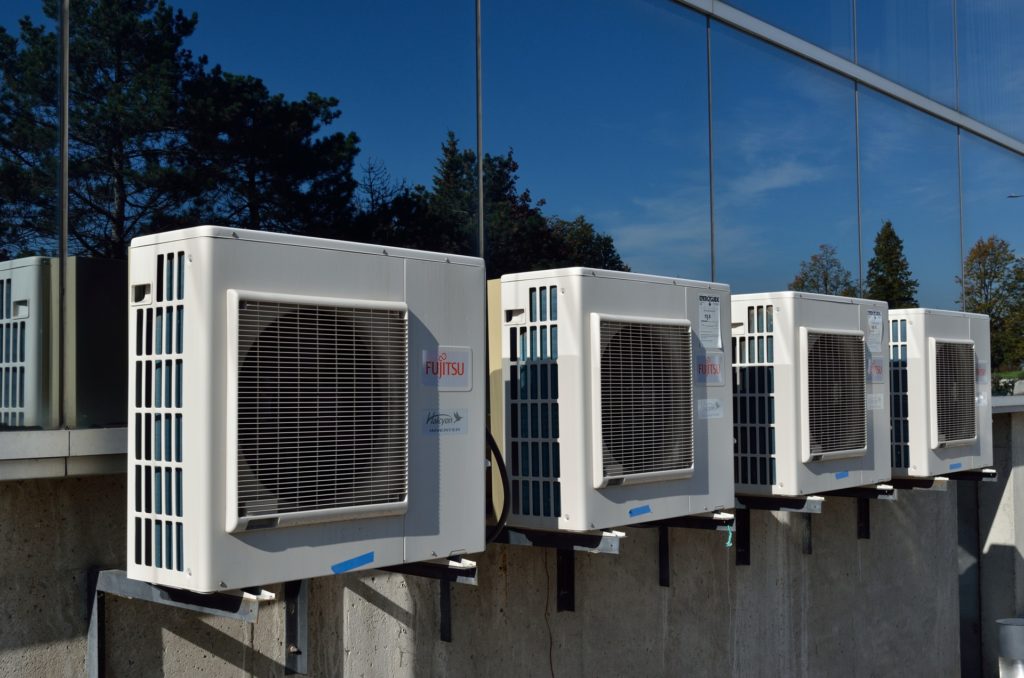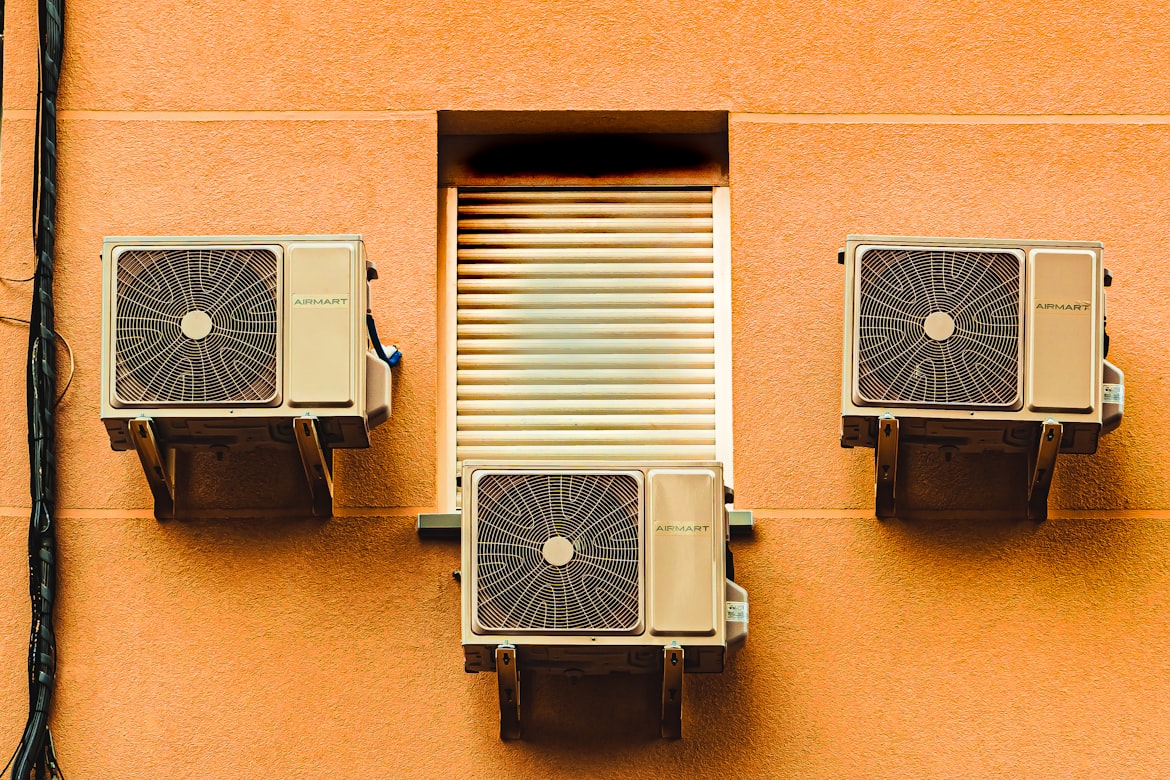
How long can a landlord leave you without air conditioning?
The summer weather can be brutal. The Centers for Disease Control and Prevention reports 384 heat-related deaths annually in the US. In the extreme Chicago heat wave in July 1995, more than 700 people succumbed to heat-related conditions. If you’re without air conditioning (AC) in hot weather, your first concern will be getting it repaired as quickly as possible. Every state has its own rules and regulations in this area. Here’s what you need to know about having your air conditioner repaired in a rental in Illinois.
Do Illinois Landlords Have To Provide AC?

Illinois legislation doesn’t address heating and AC, meaning there are no laws stating that rental units must have them. Neighboring Michigan only requires landlords to supply heat to residents, although Ohio requires heating and AC in rental units.
Individual cities and towns may have different rules. For example, Chicago recently passed new legislation stating that nursing homes, senior housing, and adult family care centers must have permanent cooling and dehumidification equipment to maintain a temperature of 75 degrees and a 50% humidity level. This came shortly after a sweltering heat wave that caused temperatures in the James Sneider Apartments to climb over 100 degrees. At the end of the heat wave, three elderly residents were found dead.
Although Illinois doesn’t necessarily require that an air conditioner be provided in your rental unit, it does require that the landlord maintain it if one is present. Therefore, if you move into a rental house or apartment with an air conditioner, your landlord must keep it in working condition.
What Is the Allotted Time for Rental Repairs?
In the state of Illinois, landlords have 14 days to respond to a repair request. This is on par with many other Midwestern states, including Kansas and Kentucky, which also provide a full two weeks for landlords to respond to their tenants’ repair needs. Although this may seem like a long time to wait, it’s a far clearer ruling than you’ll find in nearby Indiana, Michigan, and Ohio, where tenants are only required to respond in a “reasonable time period.”
With this clear-cut rule, you can take action if repairs don’t take place within the provided timeline. If, after 14 days, the landlord hasn’t addressed your issue, you’re entitled to act on your own. However, to get reimbursement, you must follow proper procedures, which we’ll detail below.
There’s an exception to the 14-day rule. If the lack of AC can be considered an emergency because it poses an immediate threat to the health or safety of an occupant in the home, you can demand a repair sooner. Extreme heat can seriously threaten an individual’s health, particularly if they’re diagnosed with certain health conditions. You may need to provide documentation of the condition or the temperatures in the building if you elect to act under this provision.
How To Request a Repair
Your 14-day timeline doesn’t start the moment your air conditioner fails. It only begins when you make a formal repair request. For this reason, you must take the proper steps to alert your landlord to any issues with your air conditioner. The state of Illinois requires that all repair requests be made in writing to the landlord. An oral request isn’t sufficient for legal recourse if the landlord fails to make a timely repair, so make sure you contact them in writing, even if you’ve had a verbal conversation about the repair as well.
Your letter should include the following:
- The date.
- The name and address of the property manager or landlord.
- Your name and full address.
- A detailed list of the repairs that are needed.
- Your signature.
- Your contact information.
You may state that you’re requesting repairs in accordance with the law that requires landlords to comply with the municipal code. You may also indicate where you’ll take action to have the repairs made on your own if your landlord doesn’t respond within the allotted 14 days.
What To Do When Repairs Don’t Happen
If your landlord doesn’t make the repair within 14 days, or if the lack of AC constitutes an emergency, as mentioned above, then you may arrange to have the repair made yourself and submit the bill to your landlord for reimbursement. If you choose to do this, the repair must:
- Be made in a workmanlike manner.
- Be completed by an appropriate tradesman or supplier unrelated to the tenant.
- Be completed in accordance with all appropriate laws, administrative rules, or local regulations and ordinances.
- Cost no more than $500 or half of the monthly rent.
- Not exceed the price customarily charged for such a repair.
What To Do When Heat Is Dangerous
It’s important to understand when heat is dangerous to your health so you can take appropriate steps to protect yourself and your family. Extreme heat is any situation with temperatures over 90 degrees for at least two days. In these conditions, individuals may suffer heat stroke, cramps, or exhaustion. Watch for the following symptoms:
- A temperature over 103 degrees.
- Rapid pulse.
- Dizziness.
- Confusion.
- Unconsciousness.
- Hot, dry skin.
- Muscle pain or spasms.
- Heavy sweating.
- Weakness.
- Headache.
- Nausea or vomiting.
- Fainting.
Seek immediate medical attention if these symptoms occur. Always stay hydrated, wear lightweight clothing, seek shade, and avoid high-energy activities in extreme heat. Cover windows and use window reflectors to keep out the sun. If you’re facing dangerously high temperatures, seek out local cooling centers that you can visit to cool down.
You should report the need for an AC repair as soon as possible to speed up the process. Ideally, you’ll make a report before your system fails completely. You likely need an AC repair if your utility bills are rising, your system no longer meets your thermostat settings, or the AC is making strange noises or emitting unpleasant odors. Dahme Mechanical in Arlington Heights, Illinois, can handle all your AC repair and replacement needs.
Photo Credit: Image by Jose Antonio Gallego Vázquez is licensed with Unsplash License
